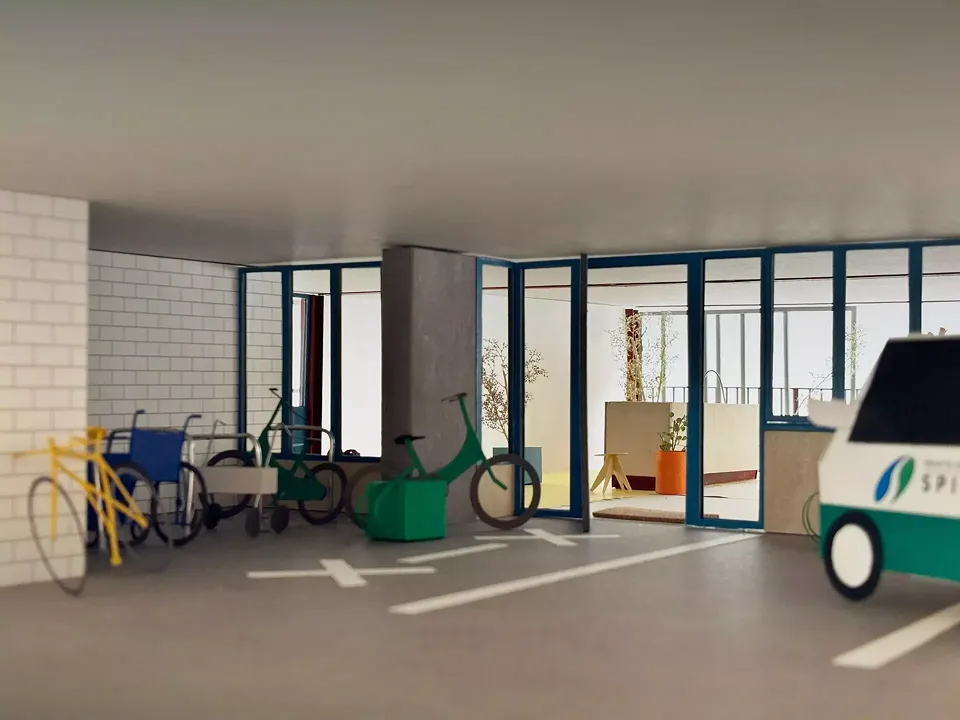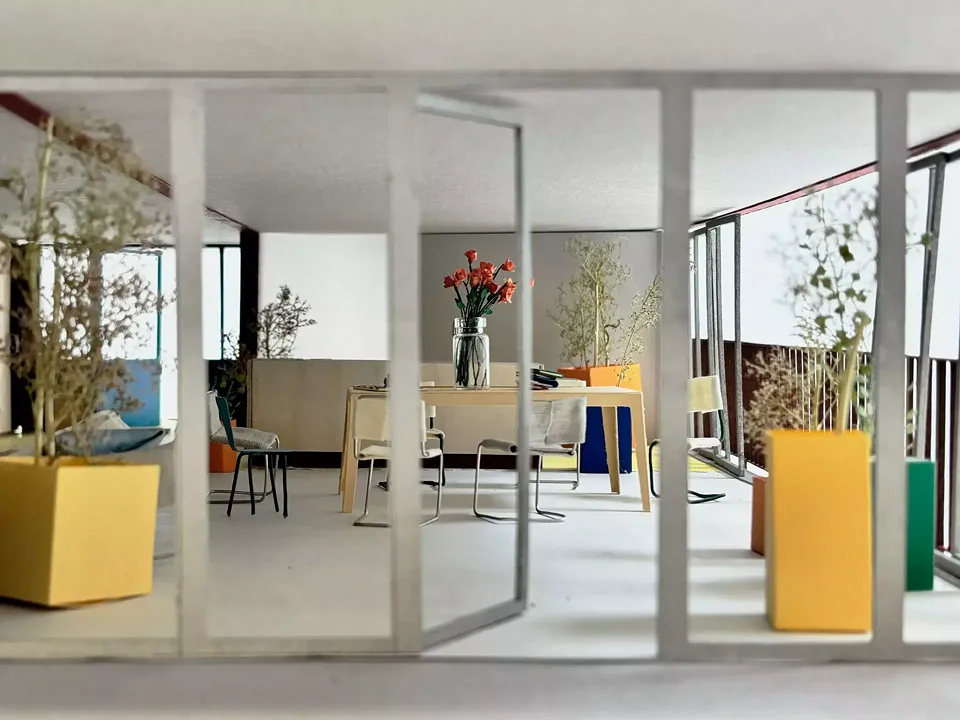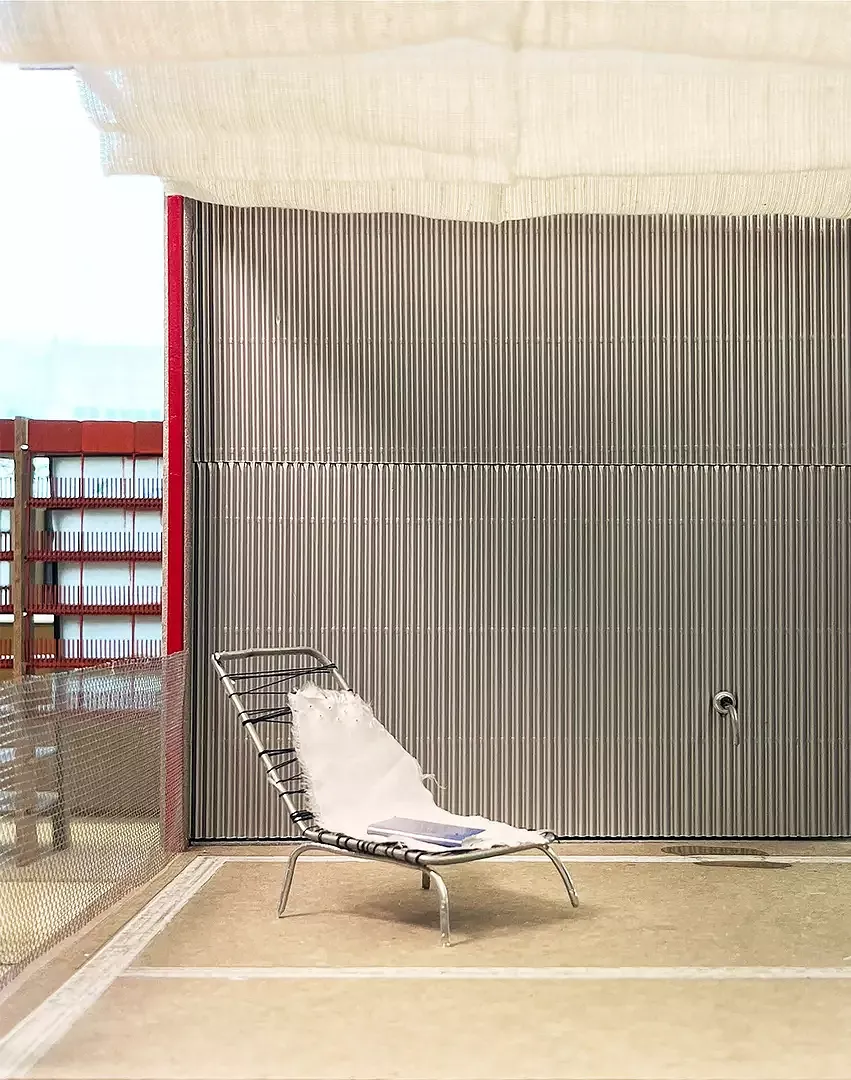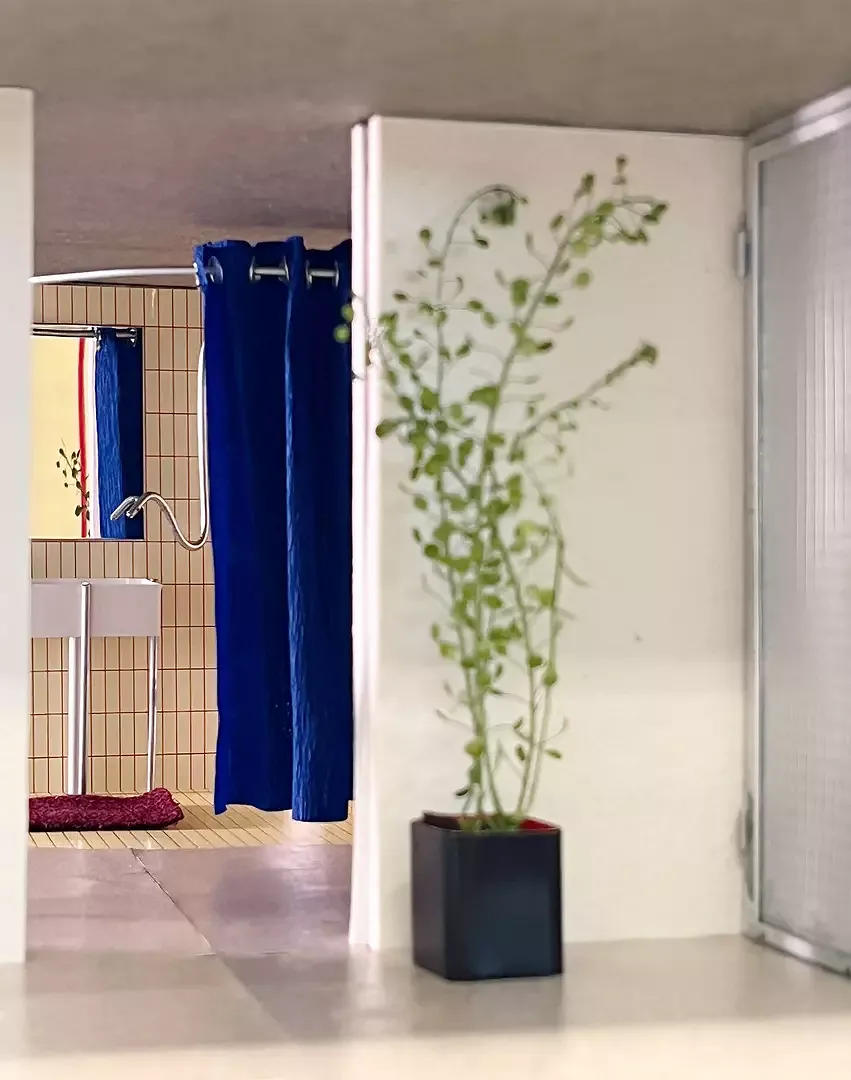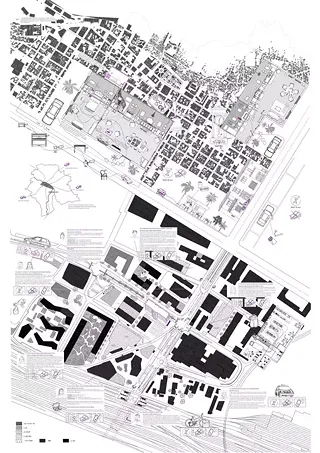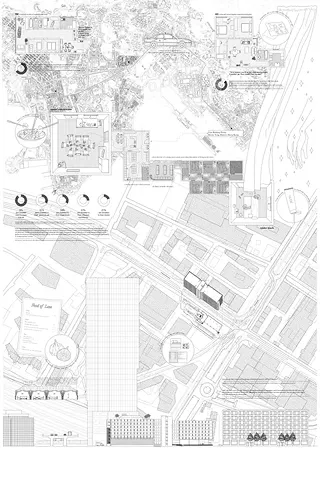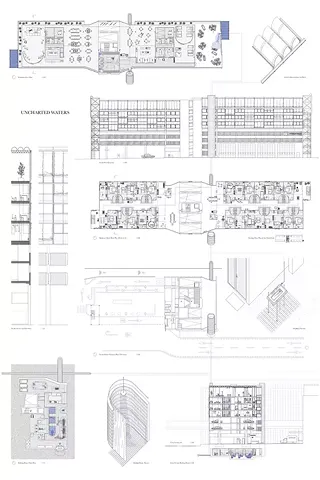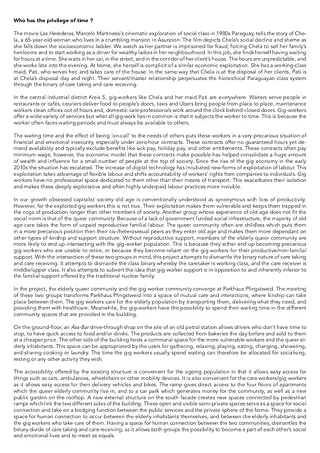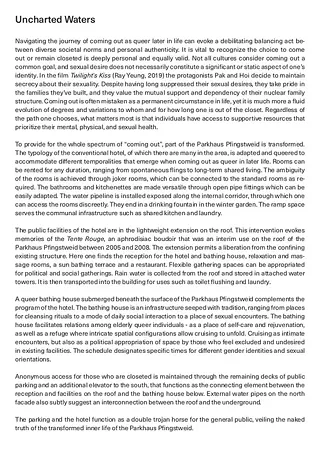Unfamiliar Ageing
8005 Zürich,
Schweiz
Veröffentlicht am 04. Juli 2024
ETH Zürich Professur für Architektur und Care
Teilnahme am Swiss Arc Award 2024
Projektdaten
Basisdaten
Beschreibung
This Master’s thesis programme 2024 explores alternative caring spaces while understanding bodily dependencies as means to create positive kinships and ageing as a political condition. The publication includes two projects from the Chair of Architecture & Care, led by Prof. Anna Puigjaner at the ETH Zurich.
Zusammensetzung Team
At the ETH Zurich Chair of Architecture & Care, led by Anna Puigjaner, Dafni Retzepi, Ethel Baraona Pohl, Lisa Maillard, Pol Esteve Castelló, and He Shen. The following diploma students from the 2024 semester were involved: Lea Andermatt, Norma Clematide, Anouk Fischer, Senga Grossmann, Ivana Luggen, Naomi Schanne, Yann Schwaller, Alissa Luks. Works by Naomi Schanne and Senga Grossmann
Aufgabenstellung
Ageing tends to be oversimplified, reducing the individual to a non-productive member of society. Often, elderly people are segregated within constricted spaces of heavily regulated care that impede self-determination on multiple planes. In the design process, we look to the ageing body with all its potentialities, addressing its spaces, contexts, and rituals. The LGBTI+ community is taken as an entry point to defy assumptions and biases around caring models and collective living. With these premises, we seek architectural and aesthetic proposals that embrace non-normative relationalities and distributed forms of care at different scales, from the body to the city.
Projects for housing facilities aimed at ageing populations are very common in the Swiss architectural context. However, it could be argued that the adopted approach is often from a point of view of hospitalised control and dependency, rarely addressing questions of social belonging, personal development, and an active participation in public life. Considering the above a central element in the projects, essential infrastructures of care are rethought in ways that serve both collective and individual wellbeing.
Vorgehen
The project and its position within this context mirrors, amplifies, and reflects on existing provisions of care – or their absence –, in order to offer alternative scenarios from an understanding of the urban context as an indispensable medium for care beyond the confinement of the home. Recognising the current conflicted relationship between domesticity and care, or the also conflicted isolation of care homes or retirement homes, the projects are able to dismantle biassed constructs, «unworlding» – or in other words, unmaking – spatial dispositions of inequality and predefined architectures of seclusion. This process of redefinition and reorganisation considers the present context in order to propose constructions that, while implemented at the scale of the building, operate at the same time in a trans-scalar manner, linking the body to the city.
Übergeordnete Fragestellung
Designing in response to territories of care and their characteristics, including the urban context and historical fabrics, soils, topography, ecologies, climate, economies, et cetera. Using formal, organisational, social, and environmental principles and informing two- and three-dimensional design. Understanding construction and structural systems and their coherent formalisation. Considering the environmental impact and reuse of the design. Making clear architectural drawings and moving images at different scales to illustrate and communicate an architectural design both technically and experientially.
The project was submitted as part of the Swiss Arc Award 2024 in the Next Generation category and published by Nina Farhumand.


